Jerry Carl and Barry Moore support failed impeachment of Homeland Security Secretary Alejandro Mayorkas
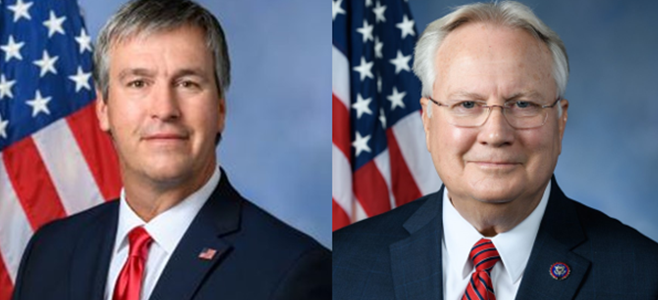
On Tuesday night, the U.S. House of Representatives voted to thwart a motion by Congresswoman Marjorie Taylor Greene (R-Georgia) to impeach embattled Homeland Security Secretary Alejandro Mayorkas. Eight Republicans joined House Democrats to stop the impeachment effort and instead refer the motion to the Homeland Security Committee for their consideration. The eight Republicans were Representatives Ken Buck (R-Colorado), Darrell Issa (R-California), Tom McClintock (R-California), Patrick McHenry (R-North Carolina), John Duarte (R-California), Virginia Foxx (R-North Carolina), Cliff Bentz (R-Oregan), and Mike Turner (R-Ohio). All six of Alabama’s Republican Congressmen voted with Rep. Greene to proceed with impeaching Mayokas. Congressman Jerry Carl (R-AL01) wrote on X, “Tonight, the House voted on a motion to refer this impeachment resolution to the Homeland Security Committee. This motion passed, so we didn’t vote to impeach him. I voted against this motion because the House needs to take immediate action to impeach Secretary Mayorkas.” Rep. Barry Moore (AL-02) also voted against killing the resolution to begin impeachment proceedings against Homeland Security Secretary Mayorkas. Rep. Moore is also a co-sponsor of this resolution. Moore was one of the first Members of Congress to call for the impeachment of Mayorkas back in May. “Under Mayorkas’ watch, there have been 8 million illegal border encounters, 52,900 pounds of fentanyl seized at the border, more than 280 people on terrorist watchlists caught while attempting to cross the border, and 1.8 million known “got aways” who have evaded U.S. authorities,” said Moore. “In the private sector, if you don’t do your job, you get fired. Mayorkas’ failure to do his job is putting Americans in grave danger every day, and it’s past time for him to be impeached.” Carl is also a co-sponsor of Rep. Greene’s resolution. “Our southern border is wide open, and we have an unprecedented illegal immigration crisis at our southern border because Secretary Mayorkas has failed to do his job. That’s why I proudly co-sponsored @RepMTG’s resolution to impeach him.” Carl said on X. Americans for Legal Immigration PAC (ALIPAC.us) announced afterward that it is dropping the national organization’s long-standing endorsement and support for Rep. Tom McClintock after McClintock joined seven other Republicans in voting with Democrats to protect Mayorkas from impeachment. “Our decade-long support for Rep. McClintock ends today, and we call on American patriots, conservatives, Republicans, and invasion opponents to mount GOP Primary challengers to any of these eight sellouts still on the ballot in 2024,” said William Gheen of ALIPAC. “These Republicans supporting Democrat efforts to flood and overwhelm U.S. elections with illegal alien Democrat voters should be run out of office! Shame on them for depriving all Americans of a true choice against illegal globalist policies.” Rep. Marjorie Taylor Greene said that she will continue her efforts to hold the Biden Administration accountable for its thwarting of the nation’s immigration laws and the crisis on the southern border. “I will not stop fighting to hold the Biden administration accountable for their open border policies that are killing Americans every day,” Congresswoman Greene said on X. “It’s time for Republicans to grow a spine and join me in impeaching Mayorkas and others who are destroying our country.” An impeachment by the House had it occurred would likely have been rejected by the Democratic-controlled U.S. Senate if the Senate even took the matter up. To connect with the author of this story or to comment, email brandonmreporter@gmail.com.
Bipartisan congressional caucus forms to address fentanyl crisis
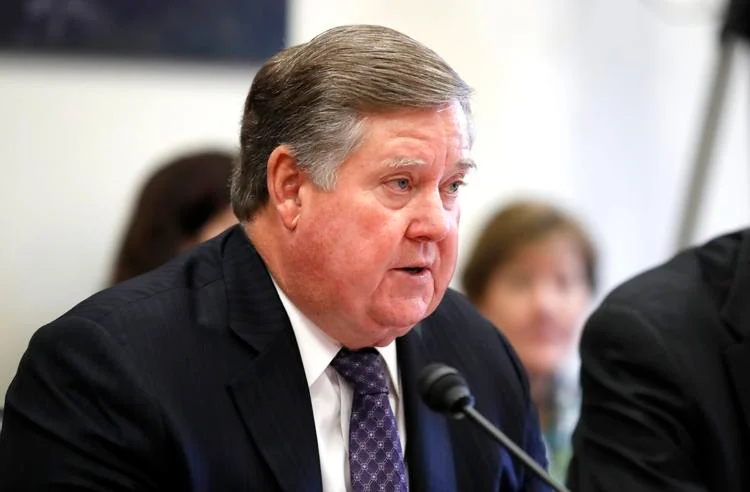
Labeling the smuggling of illicit fentanyl into the U.S. from Mexico “a national crisis,” a group of lawmakers has formed a bipartisan caucus to address the issue. Led by Republican California Reps. Ken Calvert and Darrell Issa and Democratic Reps. Joe Neguse of Colorado and Madeleine Dean of Pennsylvania, the Bipartisan Fentanyl Prevention Caucus was formed to “coordinate with members from both sides of the aisle to combat the nationwide spike in fentanyl-related overdoses and drug poisonings.” The group says it will work with federal and state law enforcement and “to educate the public and the Congress, in cooperation with prevention and awareness groups to better understand the ongoing threat of fentanyl in communities across America.” “Fentanyl is devastating the lives of Americans in every corner of our country. With fentanyl-related deaths climbing every year, we need new solutions to stop this alarming trend,” Calvert said. “This is not a partisan issue – it’s a national crisis.” Rather than pledging to end the fentanyl crisis, Calvert said he hoped the caucus would “educate Americans on the dangers of fentanyl and provide real solutions that will stop the destruction of this deadly drug.” “Fentanyl is not a new danger. But the deadly threat it poses has now reached every corner of our country, and no community is being spared,” Issa said. “The stakes could not be more clear: If we don’t win the fentanyl fight, we’re not going to just lose my community or my neighbor’s. Or any one of my colleagues. We’re going to lose this country. This caucus is needed now as we tell the truth, develop solutions, and save lives.” When announcing its formation, the caucus didn’t call on the president or Secretary of State Antony Blinken to declare Mexican cartels as Foreign Terrorist Organizations, as Texas Gov. Greg Abbott and 21 attorneys general have repeatedly done. Last September, Abbott issued an executive order designating the Sinaloa Cartel, the Jalisco New Generation Cartel, and any similarly situated Mexican drug cartels as foreign terrorist organizations” under Section 219 of the Immigration and Nationality Act. He also requested President Joe Biden do likewise, the second time he’d made the request since April 2021. In his September 21, 2022 letter, Abbott said since then, “There was no action, no response.” He’s still received no response, his office has told The Center Square. Last week, Blinken told Congress he’d consider designating cartels as FTOs. Two weeks prior, the White House said it didn’t have any intention of doing so. Republican U.S. Sens. Rick Scott of Florida and Roger Marshall of Kansas introduced the Drug Cartel Terrorist Designation Act, which Florida Attorney General Ashley Moody said will “do the job Biden refuses to do – protect the American people.” The caucus also hasn’t demanded the president designate fentanyl as a weapon of mass destruction, as 18 attorneys general have done led by Moody. Fentanyl poisoning remains the leading cause of death among adults between the ages of 18 and 45. Two milligrams, the weight of a mosquito, is lethal. In fiscal years 2021 and 2022, CBP agents confiscated enough fentanyl to kill nearly 5 billion people. Since March 2021, Texas Operation Lone Star officers have seized over 373 million lethal doses of fentanyl. Florida law enforcement officers in a few month’s time last year seized enough fentanyl to kill everyone in Florida. The U.S. Drug Enforcement Administration has issued several public alerts warning Americans about the dangers of fentanyl. Most recently it issued another public alert about the “sharp increase in the trafficking of fentanyl mixed with Xylazine,” an animal tranquilizer referred to on the streets as “Tranq.” It did so after the FDA, CDC, and multiple state agencies issued warnings about Xyzaline being detected in an increasing number of illicit drug mixtures and a growing number of overdose deaths nationwide. “Xylazine is making the deadliest drug threat our country has ever faced, fentanyl, even deadlier,” DEA Administrator Anne Milgram said. DEA has so far seized Xylazine and fentanyl mixtures in 48 of 50 states. Caucus members also include Angie Craig (D-MN), Chris Pappas (D-NH), Raja Krishnamoorthi (D-IL), Melanie Stansbury (D-NM), Chrissy Houlahan (D-PA), Ruben Gallego (D-TX), Nikki Budzinski (D-IL), Marc Veasey (D-TX), Sheila Jackson Lee (D-TX), Raúl Grijalva (D-AZ), Doug Lamborn (R-CO), Sharice Davids (D-KS), Don Bacon (R-NE), Claudia Tenney (R-NY), Andre Carson (D-IN), Ralph Norman (R-SC), Chris Smith (R-NJ), Lance Gooden (R-TX), Bob Latta (R-OH), Andy Biggs (R-AZ), Jake LaTurner (R-KS), Barry Moore (R-AL), David Valadao (R-CA), and Robert Aderholt (R-AL). Republished with the permission of The Center Square.
Tommy Tuberville calls for protecting Camp Lejeune victims from “predatory trial-lawyers’ scams”
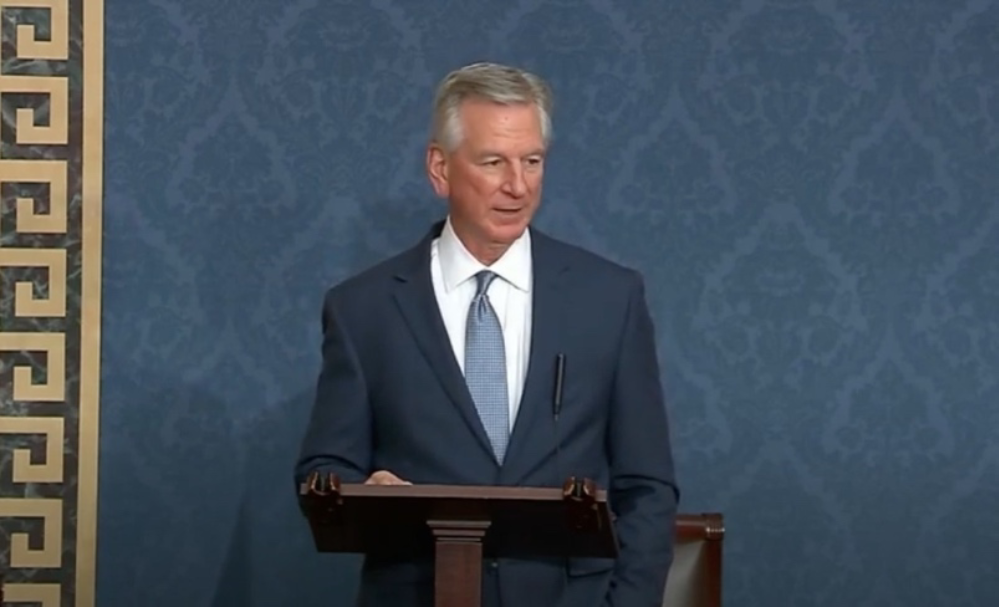
U.S. Senator Tommy Tuberville has joined Sen. Dan Sullivan in reintroducing the Protect Camp Lejeune Victims Ensnared by Trial-lawyers’ Scams (VETS) Act to cap the fees trial lawyers can charge in cases representing Marines and other individuals impacted by water contamination at Marine Corps Base Camp Lejeune in North Carolina. Tuberville said that the fees that predatory attorneys charge could, in some cases, be as high as 60 percent, leaving little compensation for the victims. “Veterans should be viewed as heroes, but sadly, predatory lawyers see them as a way to line their pockets,” said Sen. Tuberville. “America’s veterans have sacrificed too much for us to sit back and allow them to be taken advantage of by bad actors of any kind. As issues within the PACT Act continue to surface, we will fight to correct them and ensure our veterans don’t suffer because of vaguely-written legislation.” “In my eight years in the U.S. Senate, there are few issues I’ve been involved with that more desperately cry out for a just resolution,” said Sen. Sullivan. “Worst of all, the Biden Justice Department warned the Congress that, without a cap, predatory law firms could grab the lion’s share of these judgments and leave Marines and their family members with crumbs. This is an outrage—all Americans know it, all senators know it. My Republican colleagues and I have tried to remedy the situation multiple times, but some Democrats worked to block those efforts. It’s outrageous. With the bicameral legislation we are introducing, our colleagues will once again have an opportunity to protect these courageous service members who’ve served and sacrificed to protect all of us. The time to act is now. Let’s all have a little courage, like the Marines who need our help, and pass this important legislative fix.” The legislation has also been introduced in the House of Representatives. “While measures have been taken on behalf of veterans affected by the water crisis at Camp Lejeune, it has also opened the door for unscrupulous attorneys to prey on desperate victims and engage in rampant lawsuit abuse,” said Rep. Darrell Issa. “If not prevented, millions of dollars could go to predatory law firms rather than deserving service members and their loved ones. That’s why I’m thankful for the leadership of Rep. Bost and Sen. Sullivan and proud to join my colleagues in both houses of Congress to advance this crucial legislative solution. It’s time to put Marines and their families first.” Congress passed the Camp Lejeune Justice Act within the Honoring our Promise to Address Comprehensive Toxins (PACT) Act allowed Camp Lejeune victims to seek compensation. But like many pieces of legislation, there were unforeseen consequences. In this case, the hastily-written legislation did not set fee caps for attorneys in these cases, allowing unscrupulous attorneys to exploit sick veterans by charging exorbitant fees for their services. The U.S. Department of Justice (DOJ) warned of the implications should these parameters not be in place, but these warnings were ignored by Congress in its rush to pass legislation to help vets. In many cases, underground storage tanks for things like fuel, over time, can degrade. In 1982, the U.S. Marine Corps discovered dangerous chemicals known as volatile organic compounds (VOCs) in the drinking water at the Camp Lejeune base in North Carolina. These include benzene, tetrachloroethylene (also known as perchloroethylene or PCE), trichloroethylene (TCE), and vinyl chloride (VC). Some of these substances are known carcinogens. The most contaminated wells were shut down in 1985, but the problems persisted past 1987 and may date as far back as 1953. Now many elderly Marines and their dependents believe that their current healthcare issues could be related to their time at Camp Lejeune. Congress has acknowledged that Marines and other individuals were adversely impacted by water contamination at Marine Corps Base Camp Lejeune in North Carolina. Affected individuals are able to seek compensation as a result of the Camp Lejeune Justice Act. According to the latest information provided by the United States Navy, there are currently 20,000 cases filed so far, with the claims averaging around $10 million. Last November, Sen. Tuberville joined nine U.S. Senate colleagues in calling the Protect Camp Lejeune Victims Ensnared by Trial-lawyers’ Scams (VETS) Act for a vote on the Senate floor, but Senate Democrats blocked the effort. Tuberville is a member of the Senate Veterans Affairs Committee. He has already had two pieces of veterans legislation recently signed into law to help veterans. To connect with the author of this story or to comment, email brandonmreporter@gmail.com.
Tommy Tuberville and Lance Gooden introduce the Stop Settlement Slush Funds Act
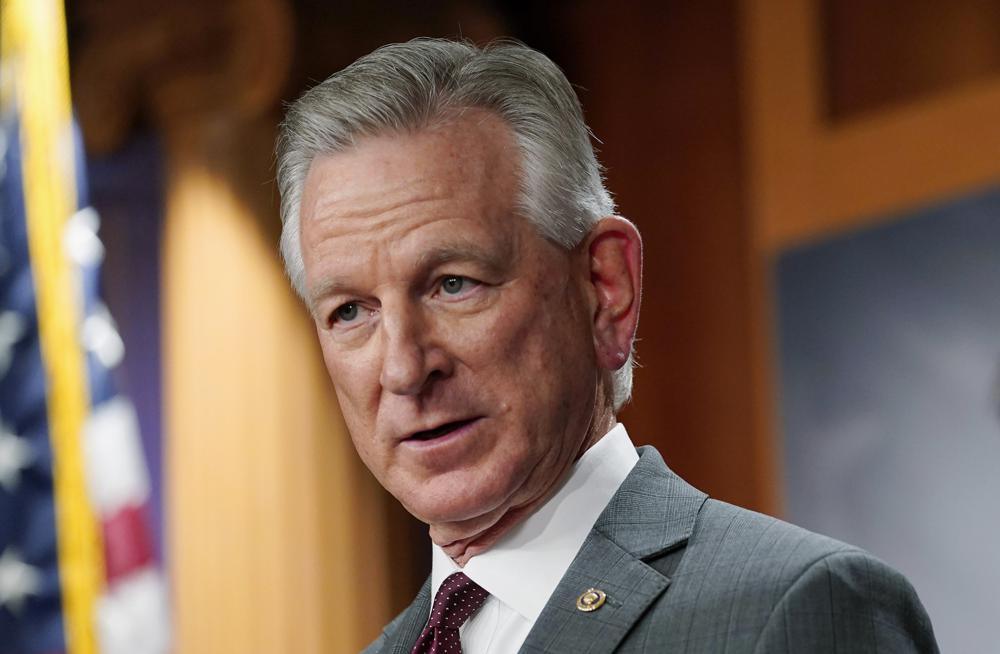
In advance of the Biden administration’s decision to finalize a rule that would revive the Obama-era policy of directing corporate settlement funds to third-party organizations, U.S. Senator Tommy Tuberville and Congressman Lance Gooden are reintroducing their Stop Settlement Slush Funds Act. The bill would prohibit the Department of Justice (DOJ) from allowing defendants to enter quid-pro-quo agreements that entail donations to third-party groups in exchange for reduced fines and tax deductions. This legislation would ensure that any settlements go only to the actual victims, injured parties in the dispute, or the U.S. Treasury. “The practice of funneling settlement dollars to political activists is an unacceptable abuse of the system,” said Sen. Tuberville in a statement. “If money is owed following a settlement agreement, every cent of that payout should go to those directly impacted by the defendants, or back to the Treasury. Public servants should not be allowed to use their influence to line the pockets of individuals who share the political views of the current administration.” Tuberville wrote on Twitter, “The Biden admin shouldn’t use the justice system to bankroll their partisan agenda. I introduced the Stop Settlement Slush Funds Act to stop DOJ from directing corporate settlement dollars to third-party, left-wing organizations instead of victims or @USTreasury.” Tuberville introduced this legislation in the last Congress. “Directing legal settlements to third-party groups is nothing short of legal extortion to fund the Biden Administration’s partisan agenda,” said Rep. Gooden. “Congress can no longer allow the Executive Branch to circumvent our Constitutional power of the purse to fund their activist pet projects and must pass my legislation to end this corrupt practice.” The Stop Settlement Slush Funds Act is endorsed by the National Taxpayers Union, Americans for Tax Reform, FreedomWorks, and Americans for Prosperity. Grover Norquist is the President of Americans for Tax Reform. “For too long, the Department of Justice has been misallocating settlement funds from civil suits to provide cash injections to political allies,” said Norquist. “This gross politicization of a government agency should be put to a stop immediately. I am proud to support Rep. Gooden’s bill to codify protections against the DOJ or any government official abusing their power to benefit special interest groups.” Adam Brandon, President of FreedomWorks, applauded the legislation. “The Stop Settlement Slush Funds Act would ensure that settlement dollars go to victims’ funds or to the general fund of the Treasury to be appropriated by Congress, which, as Article I of the Constitution requires, holds the power of the purse over funds spent by the federal government,” said Brandon. “It’s critical that Congress reins in the executive branch and assert its Article I powers, the Stop Settlement Slush Funds Act is a crucial part of this effort.” Alex Milliken, Policy and Government Affairs Manager at the National Taxpayers Union, thanked Gooden and Tuberville. “NTU supports the Stop Settlement Slush Funds Act and applauds Congressman Gooden and Senator Tuberville for working together to protect taxpayers,” said Milliken. “The practice of diverting billions of settlement dollars out of the hands of victims and toward third-party groups is a dubious practice. Congress should act quickly to put a stop to this agency behavior and prevent the misuse of resources to promote partisan agendas.” The Stop Settlement Slush Funds Act would prohibit settling parties in a federal dispute from reducing their punishments by making “donations” to outside organizations. This was a common practice under President Barack Obama’s presidency. The Obama Justice Department almost routinely required settling parties to pay a portion of their settlement obligations, under the guise of “donations,” to outside groups of the Department’s choosing. Republicans claimed that most of those groups pushed a partisan agenda. Tuberville and Republicans claim that this practice turned federal settlements into “liberal slush funds.” President Donald Trump halted the practice when he was President. Proponents of this legislation argue that without it, the Biden DOJ is expected to finalize a rule allowing the practice to continue to bolster a progressive policy agenda. Original cosponsors in the U.S. Senate include Senators Thom Tillis (R-North Carolina), Tom Cotton (R-Arkansas), Rick Scott (R-Florida), and Cynthia Lummis (R-Wyoming). Congressman Gary Palmer is an original cosponsor of this legislation in the U.S. House of Representatives. Other Congress members cosponsoring this include Reps. Scott DesJarlais (R-Tennessee), Tom Tiffany (R-Wisconsin), John Moolenaar (R-Michigan), Blaine Luetkemeyer (R-Missouri), Scott Perry (R-Pennsylvania), Darrell Issa (R-California), Randy Weber (R-Texas), Andy Biggs (R-Arizona), Claudia Tenney (R-New York), Jake Ellzey (R-Texas), and Ben Cline (R-Virginia). Tuberville is in his first term in the Senate, having been elected in a landslide in 2020, unseating incumbent Sen. Doug Jones. Tuberville is a native of Arkansas who spent forty years teaching, coaching, and sports broadcasting. He and his wife live in Auburn. To connect with the author of this story or to comment, email brandonmreporter@gmail.com.
Reps. Barry Moore and Mo Brooks demand DOD halt involuntary discharges for vaccine refusal immediately
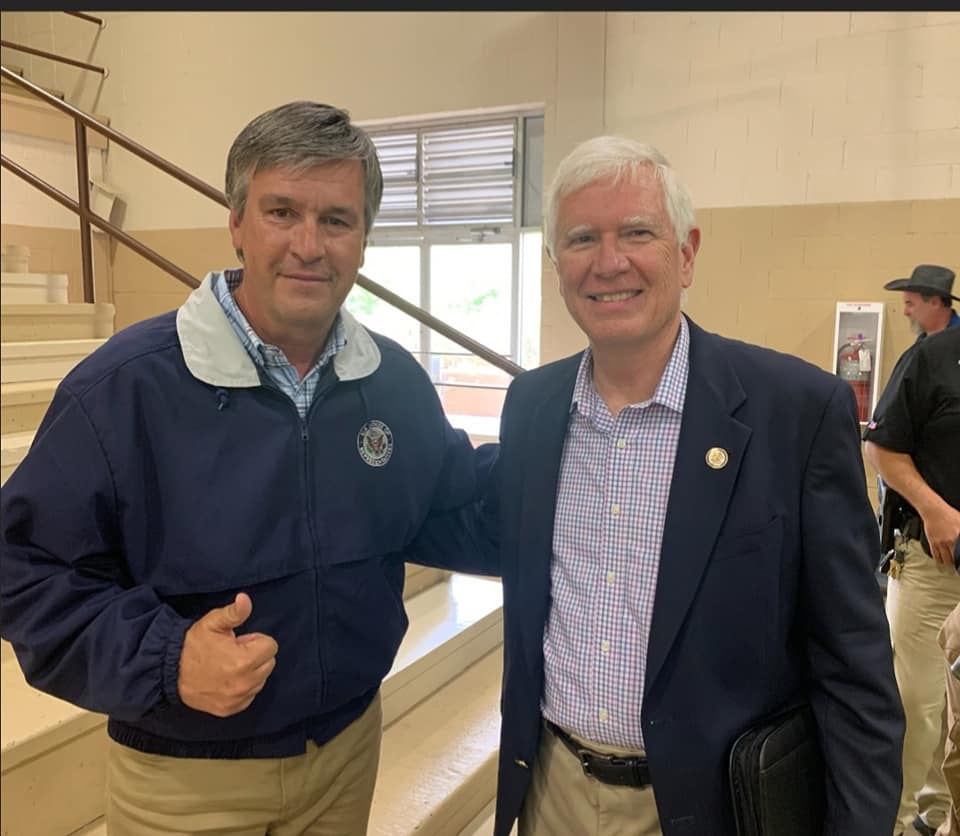
Reps. Barry Moore and Mo Brooks joined 40 of their colleagues in sending a letter to the Department of Defense (DOD) to demand that they halt efforts to involuntarily discharge members of the military who have refused COVID-19 vaccination. The letter requests that they stop until an in-depth review of natural immunity is complete, and the Department has issued uniform procedures for vaccine exemptions. According to Moore’s press release, Section 720 of the National Defense Authorization Act for Fiscal Year 2022 requires the DOD to establish uniform procedures for issuing exemptions and fully consider natural immunity. This includes eligibility timelines for consideration of exemptions for service members nearing separation and retirement in the development of uniform procedures relating to administrative exemptions. According to an NPR report, as of January 26, 96% of active troops had been completely vaccinated, while 3,350 soldiers had refused to get the vaccine. Nearly 5,900 have received temporary exemptions. “The DOD must immediately halt efforts to discharge our active-duty military members who refuse to get the vaccine just because overreaching politicians want to continue intervening in the private lives of the American people,” said Moore. “We must ensure that the DOD completes an in-depth review of natural immunity. I will continue to fight against the tyrannical vaccine mandate on our service members.” The letter states, “We are gravely concerned that the military services are proceeding with involuntary discharges when it is unclear to us whether uniform procedures have been issued by the Department of Defense. If the Department of Defense has not issued uniform procedures or reviewed the inclusion of natural immunity and the military services are moving forward with involuntary discharges, then we believe the Department is ignoring and violating Section 720. Congress included this language to protect our service members, and we expect the Department of Defense to abide by the law.” Additional members of Congress to sign the letter include Vicky Hartzler, Doug Lamborn, Elise Stefanik, Brian Mast, David McKinley, Darrell Issa, Kevin Hern, Rodney Davis, Bill Huizenga, Yvette Herrell, Michael Waltz, Bill Posey, Michael Guest, David Valadao, Thomas Tiffany, Pete Stauber, Mike Kelly, Andy Biggs, Neal Dunn, Gus Bilirakis, Dan Crenshaw, Randy Weber, Sr., Louie Gohmert, Lauren Boebert, Glenn Grothman, Alex Mooney, Joe Wilson, Scott DesJarlais, Jack Bergman, David Schweikert, Jeff Duncan, Ralph Norman, Bruce Westerman, Jim Banks, Rick Crawford, Jodey Arrington, Christopher H. Smith, Victoria Spartz, Ted Budd, and Gregory Steube.
Trump hotel may be political capital of the nation’s capital

At a circular booth in the middle of the Trump International Hotel’s balcony restaurant, President Donald Trump dined on his steak — well-done, with ketchup — while chatting up British Brexit politician Nigel Farage. A few days later, major Republican donors Doug Deason and Doug Manchester, in town for the president’s address to Congress, sipped coffee at the hotel with Rep. Darrell Issa, R-Calif. After Trump’s speech, Treasury Secretary Steven Mnuchin returned to his Washington residence — the hotel — and strode past the gigantic American flag in the soaring lobby. With his tiny terrier tucked under an arm, Mnuchin stepped into an elevator with reality TV star and hotel guest Dog the Bounty Hunter, who particularly enjoyed the Trump-stamped chocolates in his room. It’s just another week at the new political capital of the nation’s capital. The $200 million hotel inside the federally owned Old Post Office building has become the place to see, be seen, drink, network — even live — for the still-emerging Trump set. It’s a rich environment for lobbyists and anyone hoping to rub elbows with Trump-related politicos — despite a veil of ethics questions that hangs overhead. “I’ve never come through this lobby and not seen someone I know,” says Deason, a Dallas-based fundraiser for Trump’s election campaign. For Republican Party players, it’s the only place to stay. “I can tell you this hotel will be the most successful hotel in Washington, D.C.,” says Manchester, adding that he would know because he has developed the second-largest Marriott and second-largest Hyatt in the world. Manchester says Trump’s hotel will attract people based on its location near the White House and Congress, the quality renovation and the management team. Then there’s also the access. Although Trump says he is not involved in the day-to-day operations of his businesses, he retains a financial interest in them. A stay at the hotel gives someone trying to win over Trump on a policy issue or political decision a potential chit. That’s what concerns ethics lawyers who had wanted Trump to sell off his companies as previous presidents have done. “President Trump is in effect inviting people and companies and countries to channel money to him through the hotel,” said Kathleen Clark, a former ethics lawyer for the District of Columbia and a law professor at Washington University in St. Louis. She said the “pay to play” danger is even greater than it would be if people wanted to donate to a campaign to influence a politician’s thinking. Spending money at a Trump property “is about personally enriching Donald Trump, who happens to be the president of the United States.” The White House strongly disputes there’s any ethical danger in Trump’s business arrangements. Trump can see his hotel from the White House. When a Fox News interviewer mentioned that to him recently, Trump responded, “Isn’t that beautiful?” But while the interviewer pointed out that he can see the property from his desk in the Oval Office, Trump said, “I’m so focused on what I’m doing here that I don’t even think about it.” Still, Trump couldn’t resist the short trip over there for dinner on his only weekend night out in Washington since becoming president. A reporter for the website Independent Journal Review was tipped off about Trump’s dining plans and sat at a table near him. He noted the president’s dinner fare and companions, who also included daughter Ivanka Trump and her husband, Trump adviser Jared Kushner. On other nights, the posh hotel is the kind of place where on a mid-February evening, you could bump into Trump television personality Katrina Pierson having cocktails with Lynne Patton, a former Trump Organization executive who’s now working at the Department of Housing and Urban Development. Trump campaign and inauguration hands Tom Barrack, Boris Epshteyn, Nick Ayers and Rick Gates are among the many who have stayed there in recent weeks. Rooms start at above $500 most nights, according to the hotel’s website and a receptionist. That’s up hundreds of dollars from when the hotel first opened, not long before Election Day. Patricia Tang, the hotel’s director of sales and marketing, declined to answer questions about how business is going. The hotel has become a staging area for big political events. Eric and Donald Trump Jr. posed for dozens of selfies with admirers at the hotel that bears their name before attending their father’s White House ceremony in late January to announce Judge Neil Gorsuch as the president’s pick for the Supreme Court. Deason ran into the Trumps and fellow Texas donor Gentry Beach while at a meeting at the hotel that day with Trump’s campaign adviser Rudy Giuliani. During inauguration week, when Trump himself repeatedly visited, the hotel was “literally the center of the universe,” Deason said. Last Tuesday, as Trump gave his first address to Congress, lobbyists and politicos watched the four large flat screens above the bar, two tuned to Fox news and two to CNN. In what hotel staff said was an effort to avoid some of the obvious politics of the place, the TVs were muted, so people followed along on their own devices. As Trump wrapped up, applause rose through the lobby and bar. Mnuchin waved to admirers gathered in the bar as he strolled through after Trump’s speech. Mnuchin is one of the New Yorkers working in Washington who call it home during the week. White House economic adviser Gary Cohn is another. Linda McMahon, who heads the Small Business Administration, also has been staying there. Administration officials “have been personally paying a fair market rate” for their accommodations, White House spokeswoman Lindsay Walters said. Even Trump’s closest friends pay to stay. Billionaire Phil Ruffin, Trump’s partner for his Las Vegas residential tower, said he shelled out $18,000 per night while he was in town for the inauguration, which he said surprised him since he’d given $1 million to Trump’s inauguration committee. Ruffin says he lightly complained about the high rate to the president.
George W. Bush on Donald Trump and Russia: ‘We all need answers’

Former President George W. Bush said Monday “we all need answers” on the extent of contact between President Donald Trump‘s team and the Russian government, and didn’t rule out the idea that a special prosecutor could be necessary to lead an investigation. The Republican also defended the media’s role in keeping world leaders in check, noting that “power can be addictive,” and warned against immigration policies that could alienate Muslims. “I am for an immigration policy that’s welcoming and upholds the law,” Bush told NBC’s “Today” show. Bush’s comments came after a prominent Republican in Congress, Rep. Darrell Issa of California, called for a special prosecutor to investigate whether Russia interfered in the 2016 presidential election and was in touch with Trump’s top advisers during the campaign. Bush said he would trust Senate Intelligence panel Chairman Richard Burr to decide if a special prosecutor is necessary. But, Bush added, “I think we all need answers … I’m not sure the right avenue to take. I am sure, though, that that question needs to be answered.” The former president, who is promoting a book of his paintings of wounded veterans, also took issue with Trump’s characterization of the media as an “enemy of the people.” Bush said the U.S. won’t be able to convince authoritarian governments, including Russia, to open up their governments to media scrutiny if U.S. leaders try to discredit their own press. “We need an independent media to hold people like me to account,” Bush said. “Power can be very addictive, and it can be corrosive. And it’s important for the media to call to account people who abuse their power, whether it be here or elsewhere.” On the issue of immigration and Trump’s recent attempt to ban travelers from seven Muslim-majority nations, Bush warned that if the U.S. freezes out other countries and turns inward, that would only make it more difficult to fight the Islamic State group and other foreign extremists. “I think it’s very hard to fight the war on terrorism if we’re in retreat,” he said. Republished with permission of The Associated Press.
Prospective speakers multiply in House as all wait on Paul Ryan

Every day another Republican lawmaker seems to wake up and decide that he – and in at least one case, she – might make a pretty good speaker of the House. The profusion of potential candidates, now approaching double digits, is happening even with all attention focused on Wisconsin Rep. Paul Ryan, the former GOP vice presidential nominee widely seen as the best person for the job. Ryan, who has made clear he does not want to be speaker, is home in Janesville, Wisconsin, thinking it over anyway under pressure from top party leaders. And with Congress out of session for a weeklong recess, Capitol Hill has fallen quiet after a series of wild days during which Speaker John Boehner shocked the House by announcing his planned resignation, and Boehner’s heir apparent, Majority Leader Kevin McCarthy, abruptly took himself out of the running. The stunning developments left a leadership vacuum at the pinnacle of Congress. Now into it are stepping a growing number of Republican lawmakers from around the country, some relative newcomers, others with experience to point to, united by a chance to lunge at the once-in-a-lifetime opportunity to become speaker of the U.S. House, second-in-line to the presidency. Why any of them would want a job that defeated the current occupant and scared off his No. 2 is another question. The daunting rift between establishment-minded lawmakers and the hard-line conservatives who pushed Boehner to the exits shows no sign of dissipating, and threatens to complicate life for whoever next occupies the speaker’s chair. Congress also faces a series of formidable tasks over the next several months, including increasing the federal borrowing limit to avoid a default and paying the government’s bills to stave off a shutdown. Nevertheless, the wannabe speakers are multiplying. “I am humbled to have my name mentioned as a potential candidate, and I am considering the pursuit of the speakership in response to those requests,” Rep. Bill Flores, R-Texas, wrote in a letter to fellow House members Wednesday. “If we all spend enough time on our knees praying for each other, we can heal our divisions and truly work together to restore America to the ‘Shining City on a Hill’ that President Reagan challenged us to become.” Rep. Mike Pompeo, R-Kansas, released a statement observing: “I know every member of the House is looking for the right person. If I can serve the American people and the conservative movement in any way, sign me up. However, a couple weeks ago I was floated as a presidential candidate, so I might be pretty busy.” And a freshman congressman from Montana, Ryan Zinke, got into the action. “We’re looking at it. Our phones are ringing off the hook because I think America wants something different,” Zinke said. “I haven’t decided, but what I have decided is that Congress better do our duty and defend our values of this country.” Several of the lawmakers sought to make clear that they were being urged by their fellow Republicans to run for speaker; not doing so out of their own ambitions. And several also took pains to make clear that they would run only if Ryan does not. “We are all hopeful that Paul is going to say that he would appreciate the opportunity to serve as speaker,” said Rep. Marsha Blackburn of Tennessee, adding that she’s been encouraged by colleagues to look at the job. “It is going to take a listening ear and a steady head to walk our conference through some of these issues,” she said. Others who’ve suggested their interest in the speakership, or contacted fellow lawmakers to sound them out, include GOP Reps. Michael McCaul and Michael Conaway of Texas, Lynn Westmoreland of Georgia, and Darrell Issa of California. Reps. Daniel Webster of Florida and Jason Chaffetz of Utah were running against McCarthy before he dropped out, and remain in the race. Still others, such as Rep. Matt Salmon of Arizona, have seen their names pushed by outside groups seeking new leadership for the House GOP. “These are all really, really, good people, and I think if they could convince the conference that they would run the conference in a way that’s more member-oriented, many of them could be good speakers,” GOP Rep. Mick Mulvaney of South Carolina, a founding member of the hard-line House Freedom Caucus, said in an interview after several potential candidates contacted him to gauge support. Although Ryan would be the prohibitive favorite for the job if he does seek it, Mulvaney and others disputed arguments that he’s the only one who could unite the House GOP. Ryan, an expert on budgetary matters who chairs the tax-writing Ways and Means Committee chairman, is already drawing criticism from some on the right for his support for comprehensive immigration legislation and government bailouts. “I like him and I respect him, and I think there are a number of directions he might take us that I don’t want to go, and immigration is one of those,” said Rep. Steve King, R-Iowa. “I don’t think he would be one who would transform (the House) and turn it into a membership-driven organization and I think this is our one chance to do that.” Republished with permission of the Associated Press.


